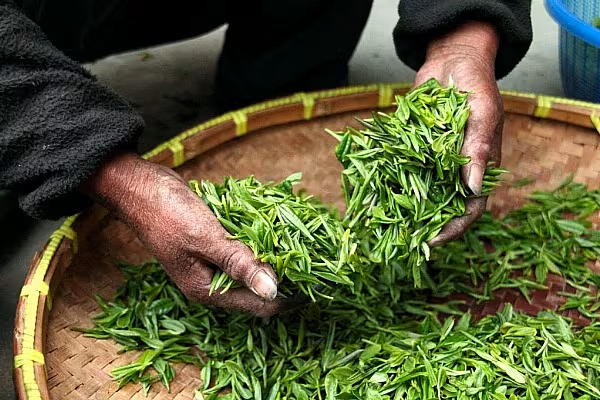Tea prices in the world's second-biggest producer India have jumped to a record after intense floods and coronavirus movement restrictions trimmed output in the main producing region.
The price rise could support the beleaguered Indian tea industry which has struggled with rising production costs, but may limit New Delhi's exports and boost shipments from rivals such as Kenya and Sri Lanka, multiple trade sources said.
Floods have damaged tea gardens in the northeastern state of Assam - which accounts for over half of India's production - where output had already been cut by labour movement restrictions to contain the coronavirus outbreak, Prabhat Bezboruah, chairman of India's Tea Board said.
Floods in Assam have killed at least 84 people and displaced more than 2.75 million since May.
'Crop Loss' Expected
"The 10% crop loss is expected to be compensated by a 12% price rise after eight years of price stagnation, but next year prices may decline on likely reports of higher production," Bezboruah said.
Production losses have already lifted weekly auction prices to a record of 232.60 rupees ($3.11) per kg, up 57% from a year ago, according to the Tea Board.
That compares to annual average price moves of around 1% to 3% in recent years, said Kalyan Sundaram, secretary of the Calcutta Tea Traders' Association.
The lost crop is unlikely to be recovered as many tea gardens remain submerged and the premium second flush crop that usually fetches higher prices has been damaged, said Nazrana Ahmed, chairman of Assam Tea Planters Association.
Second flush refers to the leaves that bloom from a tea plant at the beginning of monsoon season after the first set are plucked.
"Production cost has gone up substantially in the last few years. Many tea producers may not survive unless prices sustain at current level," said Sujit Patra, secretary at Indian Tea Association.











